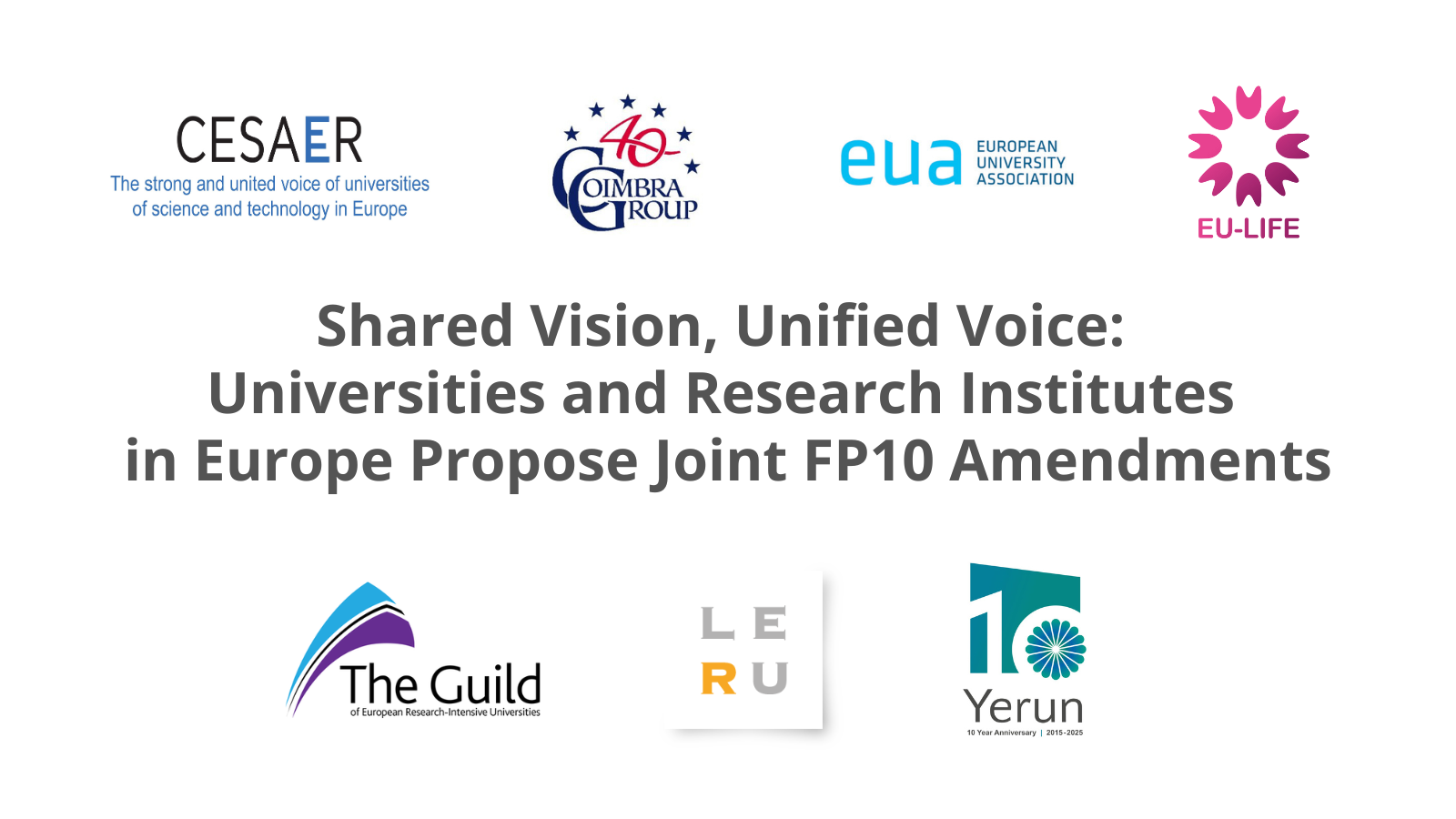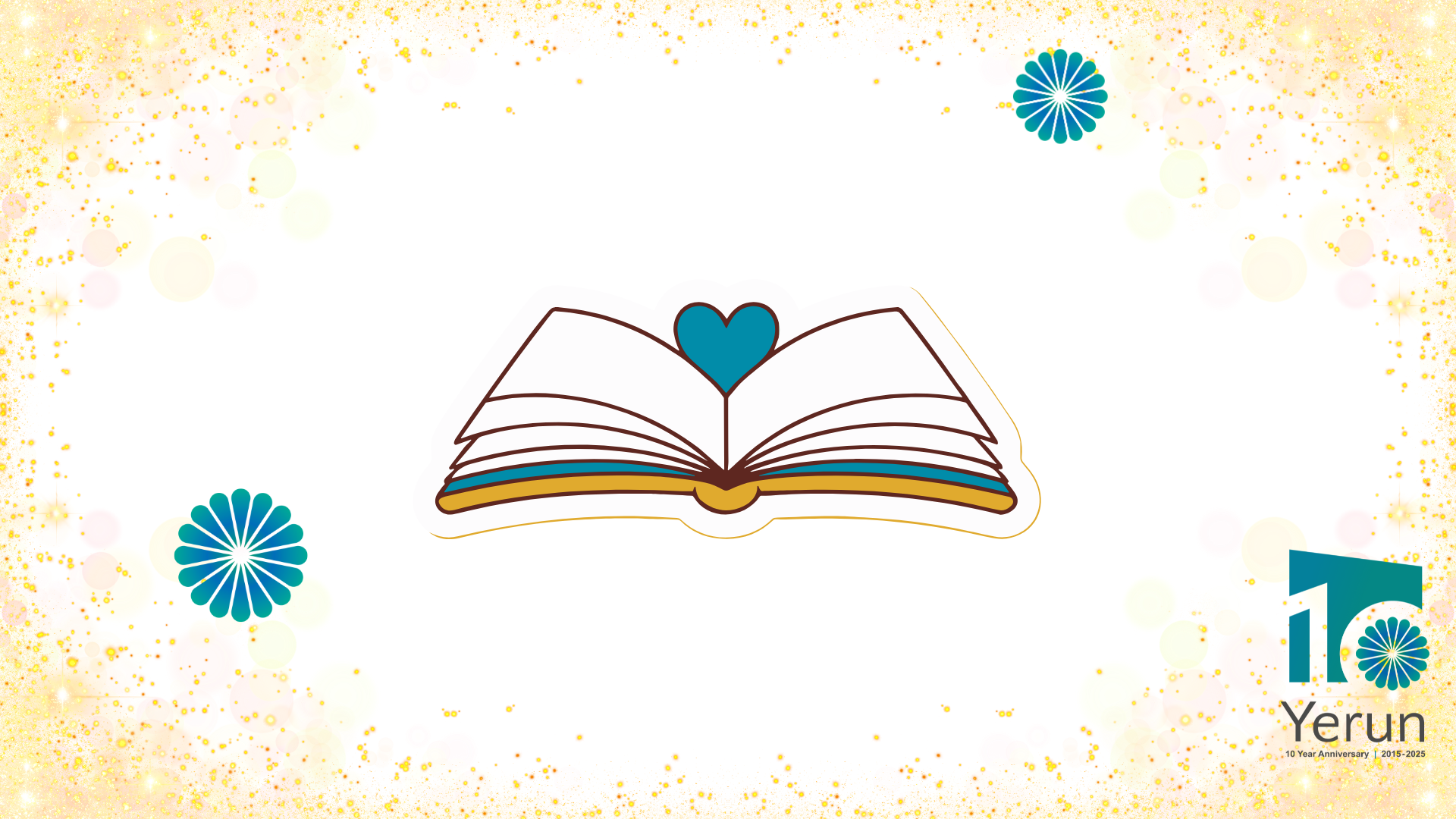The Young European Research Universities Network (YERUN) welcomes the opportunity to contribute to the development of the report of the Expert Group on the interim evaluation of Horizon Europe, led by Professor Manuel Heitor, and provide strategic directions for the forthcoming tenth Framework Programme (FP).
Highlighting the main points of our YERUN paper FP10: Attractive, impactful and inclusive – published in April 2024 and amplified with personal statements of researchers and research managers implementing the programme on the ground in an accompanying video series – below is the YERUN’s related input to the Expert Group’s questions on the major challenges, successes and innovations for the current and future FP.
We all know that part of the major successes of the current FP are Pillar 1 initiatives, namely the European Research Council (ERC) and the Marie Skłodowska-Curie actions (MSCA). As recent changes we welcome the change of evaluation criteria for the ERC on weighing the project idea more heavily than the researchers’ career is a positive development that should be continued. Another crucial point to highlight is that research collaborations – outside of partnerships – under Pillar 2, should be preserved. These offer significant advantages, including greater inclusivity, flexibility and agility, allowing researchers to swiftly adapt to new findings and emerging priorities. These collaborations encourage diverse participation, enabling smaller entities and those from less research-intensive regions to contribute, thus fostering inclusive growth. With a targeted focus on specific research questions, these projects can achieve direct and immediate impacts, often with reduced administrative overhead, making participation and management easier. They also promote new collaborations across different sectors, enhancing knowledge transfer and multidisciplinary approaches. By allowing collaborators to set their own research objectives and timelines, tailored to their strengths and needs, these collaborations build research and innovation capacities, particularly benefiting excellent research organisations with less experience in coordinating large-scale European projects. Overall, such collaborations create a dynamic environment conducive to innovation and impactful research outcomes.
In order to tackle the major roadblocks, namely excessive earmarked and prescriptive calls, complexity of instruments, administrative burden, among others, the key innovations YERUN proposes for the current and the next FP include:
- Integrating the impact section into excellence and implementation sections of proposals: currently, the requirements of the impact sections often lead to the hiring of external parties to draft project proposals which can result in impact sections that are artificial, overambitious, and detached from the actual research. Better integration of impact in proposals will promote coherence.
- Improving coordination of projects in Pillar 2 clusters to better exploit research results: the outreach potential of clusters is under-exploited, as they could collectively reach a much wider audience than individual projects. Rather than fragmenting the efforts of individual projects to capitalise on results and to reach stakeholders, improved cluster coordination by the EC and agencies within Pillar 2 should be facilitated to enhance the collective impact of projects.
- Testing models to intensify interdisciplinary low-TRL research within Pillar 2: the FP should prioritise a research-oriented approach with fundamental collaborative research delivering broad research outputs which will in turn reinforce the innovation pillar. We need to remove the linear conceptions from research to innovation and enable a more flexible approach.
- Piloting the use of societal readiness levels or other approaches to embed social considerations in calls can encourage cross-sector collaboration and stimulate interdisciplinary projects that consider both technological feasibility and societal desirability. Social Sciences and Humanities (SSH) fields should also be better integrated but also directly addressed, which are too often neglected. Additionally, evaluation panels should include more evaluators with SSH backgrounds.
- Providing guidelines and good practices for the ethical use of Gen AI in the FP: Artificial Intelligence should be seen as a horizontal tool which should be responsibly used.
- Make missions a separate, horizontal and more ambitious programme outside of the FP: a separate fully fledged programme for missions is needed where the FP’s role would be to exclusively fund the R&I dimension of missions, in synergy with Pillar 2 cluster.
In conclusion, YERUN’s input underscores the importance of fostering an inclusive, impactful, and agile research landscape in the forthcoming FP10. We look forward to a continued collaboration with the Expert Group to advance scientific excellence and drive meaningful societal change.
.
Photocredit: © European Commission










